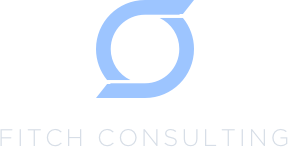Future Forward: Toward a New Way of Driving Growth
Photo by Austin Chan on Unsplash
Innovation is messy; we must be willing to fail, learn, and try again. This is certainly true of the quest for new and better ways of working – and, as I observed in my previous article, evidence suggests that current ESG methodologies might fit into the category of need to do better.
Whatever the shortcomings of ESG, we must not ignore the unmistakable signs that traditional command-and-control management styles are failing to foster the innovation and adaptability that we desperately need. To truly thrive in the future, we must embrace new solutions that prioritize engaging and inspiring our creative talent to solve problems and seize opportunities. This needn't be about social responsibility; whatever our position on the role of business, we all want consistently high performance, and this requires some honest reflections and open-minded thinking.
New Paradigms Require New Solutions
Today, many organizations still rely on what might be considered the classical logic of management. Under such logic, organizations are seen as machines designed to achieve predetermined goals. Evidence of this type of approach is available in practices that are common across organizations. For example, when an employee first joins a firm, their work will be defined in terms of tasks, competences, and objectives. A manager will likely make sure that a new employee understands what to do and how to execute their work, but rarely will spend time looking at why the work is important and / or opportunities for increasing their contribution to overall results. Not surprisingly, people see themselves as “part of the machine” and prioritize reliability over creativity and growth.
Under these arrangements, businesses are stagnating and, under pressure, the rigid hierarchical structures that have been relied on for so long are gradually (but too slowly!) giving way to more dynamic and flexible systems. In today's knowledge-based economy, success isn't about dictating tasks from the top down; it's about cultivating an environment where every individual feels empowered to contribute their unique insights and talents. And given the unpredictability and volatility that we increasingly deal with, we need a way of harnessing these talents to anticipate new challenges and determine collective ambition. This shift requires a departure from micromanagement toward a culture of trust, collaboration, and shared purpose. For example, a recent report by the Institute for Corporate Productivity (i4cp) confirmed a clear correlation between trust and productivity.
You Can't Tell People How to Think - Engage Hearts and Minds
In the realm of knowledge-based work, success isn't solely determined by technical proficiency or adherence to rigid protocols. Instead, it hinges on the alignment of individual purpose with collective goals. Employees are no longer satisfied with merely following orders; they seek fulfillment and meaning in their work.
To truly engage hearts and minds, organizations must foster a culture of purpose driven autonomy. By providing a clear vision and values, alongside the freedom to explore and innovate, companies can inspire their employees to fully invest themselves in their work. This approach not only boosts morale and retention but also cultivates a workforce that is agile, creative, and driven by a shared belief in the possibility of achieving great things.
Fitch Consulting's concept of “guided autonomy” encapsulates this ethos perfectly. It recognizes that while direction and guidance are essential, true innovation flourishes when individuals are given the autonomy to explore their ideas within a supportive framework. By embracing this approach, organizations can harness the full potential of their workforce, driving innovation and growth in ways previously unattainable.
Identify the Types of Growth that Matter Most
In pursuit of growth, it's essential to broaden our definition beyond traditional metrics like profits and shareholder returns. While these indicators are undoubtedly important, sustainable growth is built by focusing on your leading indicators. Profits and shareholder returns are the outcomes of successfully achieving growth in those things that make your business matter.
What arguably matters most is growth in employee motivation and capability, which fuels innovation and productivity, driving long-term success. Measures such as employee engagement and confidence are critical signals of what you can expect because ambitious organizations that continuously strive to push boundaries and challenge the status quo are better positioned to seize emerging opportunities and navigate change. This in turn demands real-time insights into the changing needs and preferences of customers and other stakeholders. In today’s hyper-connected and data rich world, businesses must foster lasting relationships built on trust, value and mutual benefit.
Don't Shy Away from Making a Difference
By focusing on these forms of growth, organizations can build the foundation for improved performance and sustainable financial success. Failure to do so will likely mean that any increases in revenues or profitability are short-lived, as you won’t retain the commitment of your employees or customers.
So, the business case is clear. None of this is meant to suggest that businesses should not want to pursue goals other than profit from a purely moral standpoint. In today's interconnected world, business is increasingly expected to play a role in addressing societal challenges and driving positive change. I believe that businesses should be constantly alert to ways of adding value to all their stakeholders.
But I do appreciate that not everybody shares my view on the role of business. That is OK, providing we understand that if we are to strive for productivity, growth and the maximization of profits, then we must change the way we run our businesses. If we don't accept a moral imperative, then understand this as a strategic imperative. Today, organizational growth demands ways of working that are more human and more likely to deliver impact beyond profit. Rather than get distracted by false narratives, we should embrace and celebrate this reality – we truly are looking at an opportunity to change for good.

